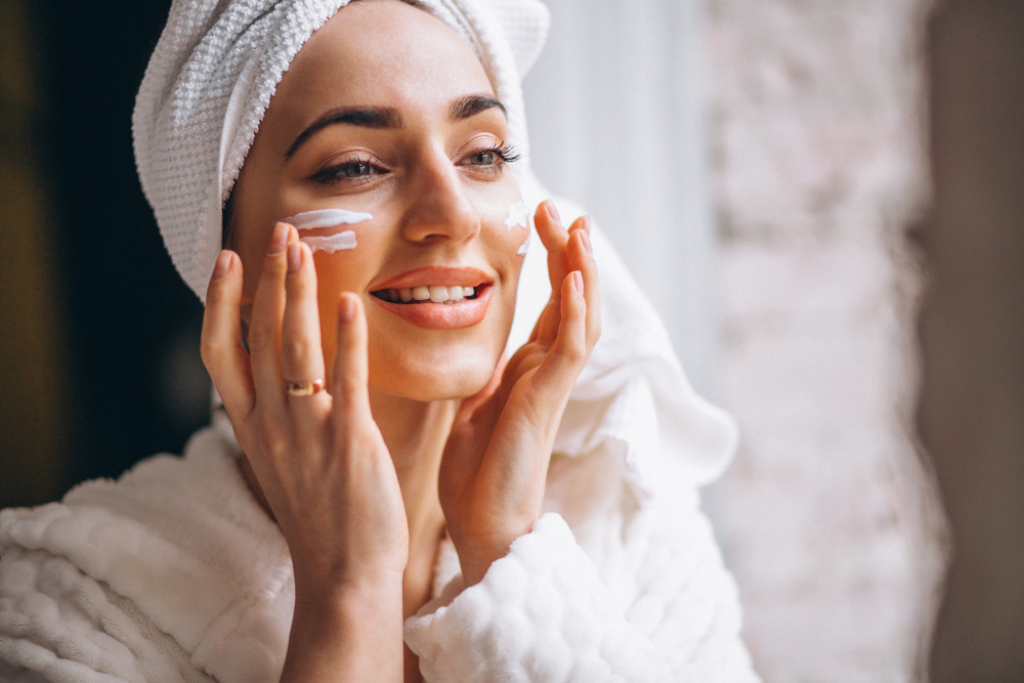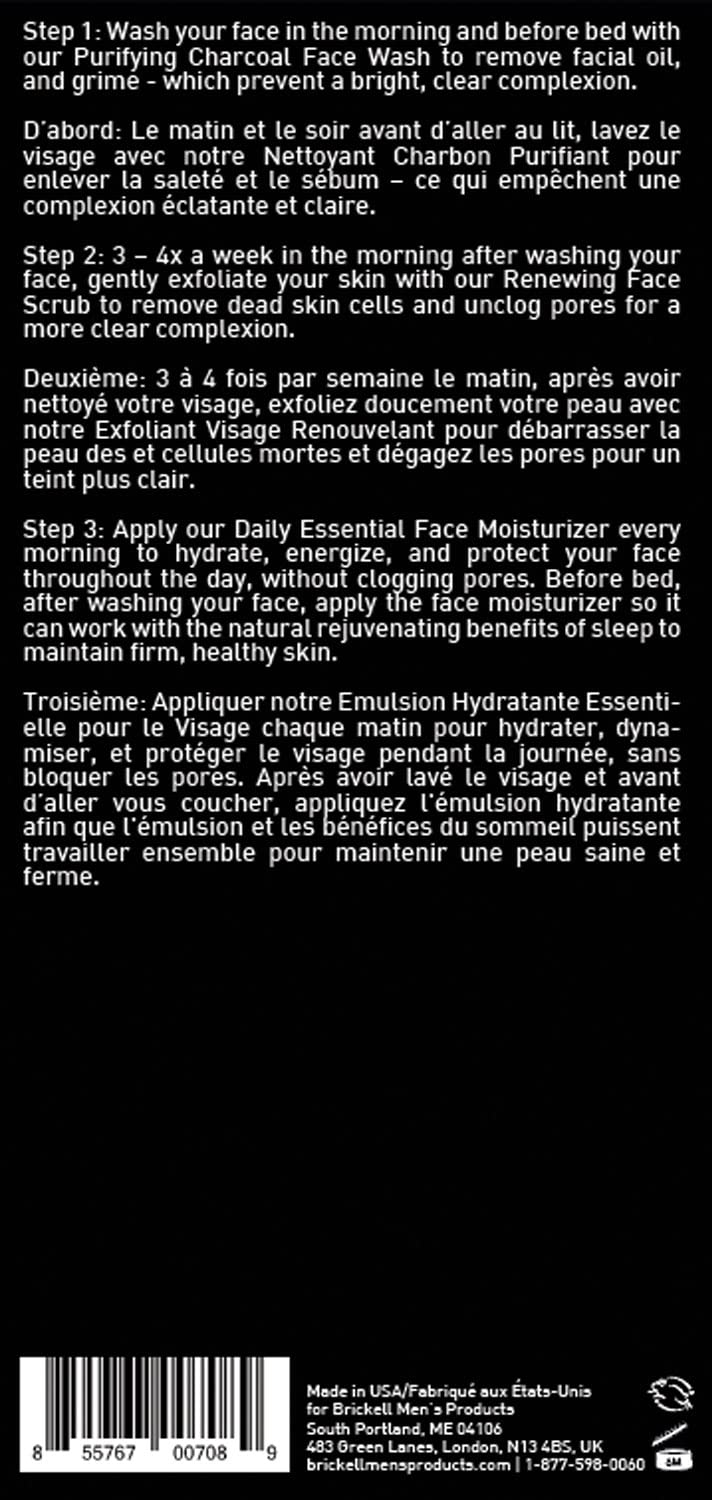As the colder months settle in, it’s crucial to give your skin the extra love and attention it deserves. That’s why we’ve put together the Ultimate Winter Skin Care Essentials Guide just for you. From hydration to protection, this comprehensive series of skincare guides will help you combat dryness, maintain a healthy glow, and keep your skin looking radiant all winter long. Say goodbye to chapped lips and flaky skin – we’ve got everything you need to keep your complexion flawless and nourished throughout the season. So grab a warm cup of cocoa, cozy up, and let’s embark on this winter skincare journey together.
Preventing Dry Skin
Moisturize Daily
To prevent dry skin during the winter months, it is essential to moisturize your skin daily. The cold and dry air outside and the indoor heating can strip your skin of its natural moisture, making it dry and itchy. By applying a moisturizer regularly, you can replenish and lock in moisture, keeping your skin hydrated and supple. Look for moisturizers that are rich in hydrating ingredients such as hyaluronic acid, glycerin, and ceramides, as they work wonders in combating dryness.
Use a Humidifier
Using a humidifier in your home is a great way to combat dry skin during the winter. Heating systems tend to deplete the air of moisture, leading to dry skin and even exacerbating conditions like eczema. By adding a humidifier to your living space, you can increase the humidity levels, which helps to keep your skin hydrated. This is especially helpful during the night when you sleep, as you can wake up with softer, more moisturized skin.
Protect Your Skin from the Cold
The cold winter air can be harsh and damaging to your skin. To prevent dry skin, it’s important to protect your skin when venturing outside. Make sure to dress warmly with layers to shield your body from the cold. Don’t forget to cover your face with a scarf or a face mask to protect it from the chilly air and wind. By providing a barrier between your skin and the harsh elements, you can help prevent moisture loss and keep your skin healthy.
Avoid Hot Showers
While it may be tempting to indulge in a hot shower or bath during the winter months, it can actually worsen dry skin. Hot water strips your skin of its natural oils and moisture, leaving it dry and dehydrated. Instead, opt for lukewarm water when showering or bathing. Also, keep your showers short to prevent excess moisture loss. After showering, pat your skin dry gently with a towel and immediately apply a moisturizer to lock in the moisture.
Choosing the Right Moisturizer
Look for Hydrating Ingredients
When selecting a moisturizer for winter, it’s important to look for key hydrating ingredients. Ingredients like hyaluronic acid, glycerin, and ceramides work wonders in boosting the hydration levels of your skin. Hyaluronic acid is a natural moisturizing factor that can hold up to 1000 times its weight in water, making it incredibly effective in plumping and hydrating the skin. Glycerin helps attract and lock in moisture, while ceramides strengthen the skin barrier to prevent moisture loss.
Consider Your Skin Type
Different skin types have different needs, so it’s important to choose a moisturizer that suits your specific skin type. If you have dry skin, opt for a rich and creamy moisturizer that provides intense hydration. Combination or oily skin types can benefit from lightweight, oil-free moisturizers that won’t clog pores. Sensitive skin types should choose moisturizers that are fragrance-free and formulated with gentle ingredients to minimize the risk of irritation.
SPF Protection
Even though winter may not be associated with strong sunlight, it’s important to remember that UV rays can still be damaging, especially when they reflect off snow and ice. Look for moisturizers with built-in SPF protection to ensure that your skin is shielded from harmful UV rays. Choose a broad-spectrum sunscreen with an SPF of at least 30 to ensure adequate protection. Applying an SPF moisturizer in the morning can help guard against sun damage, even on cloudy or snowy days.
Exfoliation and Cleansing
Gentle Exfoliation
Exfoliation is an essential step in any skincare routine, especially during the winter when dry and dead skin cells can accumulate. It helps to remove the buildup of dead skin cells, allowing moisturizers to penetrate more effectively and leaving your skin looking fresh and radiant. However, it’s important to exfoliate gently to avoid irritating or damaging your skin. Opt for gentle exfoliators with ingredients like jojoba beads or fruit enzymes, which exfoliate without being too abrasive.
Cleansing Routine
Establishing a proper cleansing routine is crucial for maintaining healthy skin, especially during winter. Use a gentle cleanser that doesn’t strip your skin of its natural oils. Avoid using hot water, as it can further dry out your skin. Instead, use lukewarm water to rinse off your cleanser. Pat your skin dry with a towel instead of rubbing, as excessive rubbing can cause skin irritation. Follow up with a moisturizer immediately to seal in hydration.
Avoid Harsh Ingredients
During the winter months, it’s best to avoid skincare products that contain harsh ingredients that can further strip your skin of moisture. Avoid products with alcohol, as they can be drying. Additionally, fragrances and essential oils can be irritating to sensitive skin, so it’s best to opt for fragrance-free or hypoallergenic products. Read the labels carefully and choose products formulated with gentle ingredients that won’t compromise the moisture balance of your skin.
SPF Protection
Importance of Sunscreen in Winter
While it may seem counterintuitive to apply sunscreen during the winter, it is just as important as in the summertime. UV rays can still penetrate through clouds and cause damage to your skin, leading to premature aging and an increased risk of skin cancer. In fact, snow and ice can reflect up to 80% of UV rays, intensifying their impact. By incorporating sunscreen into your daily routine, you can protect your skin and maintain its health and vitality.
Choose a Broad-Spectrum Sunscreen
When selecting a sunscreen for winter, make sure to choose one that offers broad-spectrum protection. This means it protects against both UVA and UVB rays. UVA rays are responsible for aging and can penetrate deep into the skin, while UVB rays cause sunburn. By using a broad-spectrum sunscreen, you can shield your skin from both types of harmful rays. Look for a sunscreen with an SPF of at least 30 for adequate protection.
Apply Sunscreen Correctly
To ensure sufficient protection, it’s important to apply sunscreen correctly. Start by squeezing out a generous amount of sunscreen, about a nickel-sized dollop, and apply it to your face and neck. Don’t forget to cover all exposed areas, including your ears. Gently massage the sunscreen into your skin in circular motions until it is fully absorbed. Remember to reapply every two hours, especially if you are spending prolonged periods outdoors.
Lip Care
Keep Lips Hydrated
Chapped and dry lips are a common problem during the winter months. To keep your lips hydrated and healthy, it’s important to incorporate a lip care routine into your skincare regimen. Use a gentle lip scrub to exfoliate away dead skin cells, then apply a moisturizing lip balm to nourish and protect your lips. Look for lip balms with hydrating ingredients like shea butter, beeswax, and vitamin E to keep your lips soft and supple.
Protect Lips from the Elements
The cold winter air and harsh winds can leave your lips feeling dry and chapped. Protect your lips by wearing a scarf or a face mask that covers your mouth when you’re outdoors. This helps shield your lips from the cold and wind, preventing excessive moisture loss. If you’re engaging in outdoor activities such as skiing or snowboarding, consider using a lip balm with SPF to protect your lips from the sun’s rays as well.
Use a Lip Balm with SPF
While it’s important to protect your lips from the cold, don’t forget about sun protection. Like the rest of your skin, your lips can also be damaged by UV rays. Look for a lip balm that contains SPF to shield your lips from harmful sun rays. Apply it generously before heading outdoors and reapply as needed, especially if you are spending a lot of time in direct sunlight. By taking these precautions, you can keep your lips healthy and moisturized all winter long.
Hand and Foot Care
Moisturize Hands and Feet Regularly
During winter, your hands and feet are often the most exposed parts of your body, making them prone to dryness and cracking. Regularly moisturizing your hands and feet is essential to keep them hydrated and smooth. Invest in a rich hand cream and foot cream and apply them generously after washing or bathing. Look for creams with nourishing ingredients like shea butter, coconut oil, or urea, which can deeply moisturize and replenish dry skin.
Wear Gloves and Socks
Protecting your hands and feet from harsh winter conditions is crucial to prevent dryness and cold-related skin problems. Invest in a good pair of gloves and wear them whenever you venture out into the cold. Gloves act as a barrier, shielding your hands from the drying effects of cold air and wind. Similarly, wearing socks made of breathable materials like cotton or wool can help keep your feet warm and moisturized, especially when paired with a moisturizing foot cream.
Exfoliate and Soften Skin
Exfoliating and softening the skin on your hands and feet is key to maintaining smooth and healthy-looking skin. Use a gentle scrub or exfoliating gloves to remove dead skin cells and improve blood circulation. Follow up with a nourishing hand or foot cream to lock in moisture and soothe dryness. Regular exfoliation helps to promote cell turnover, revealing newer and more radiant skin, while moisturizing ensures that your hands and feet stay hydrated and supple.
Protecting Your Eyes
Moisturize the Eye Area
The delicate skin around your eyes is particularly susceptible to dryness and fine lines during the winter. To prevent these issues, it’s important to moisturize the eye area daily. Look for eye creams or serums that are specifically formulated for the delicate skin around the eyes. These products are often lightweight and absorb quickly, providing intense hydration and helping to reduce the appearance of fine lines and wrinkles.
Wear Sunglasses
Sunglasses are not just a fashion accessory; they are essential for protecting your eyes from the winter sun’s harmful UV rays. Even though it may be overcast, UV rays can still penetrate through clouds and cause damage to your eyes. Look for sunglasses that offer 100% UV protection and wraparound styles for maximum coverage. By wearing sunglasses, you can help prevent eye dryness, irritation, and even long-term eye damage.
Avoid Rubbing Your Eyes
When your eyes feel dry or itchy, it’s natural to want to rub or scratch them. However, this can actually worsen the problem and lead to irritation and redness. Rubbing your eyes can also cause the delicate skin around them to stretch and form wrinkles. Instead, try gently applying a cold compress or using eye drops to soothe any discomfort. If dryness persists, consult an eye care professional for further guidance and treatment options.
Hydrating Face Masks
Benefits of Face Masks in Winter
Face masks are a fantastic addition to your winter skincare routine as they provide an extra boost of hydration and nourishment. They can help restore moisture to your skin, leaving it feeling smooth and refreshed. Face masks also provide an opportunity for relaxation and self-care, allowing you to take a few moments to unwind and pamper yourself. Incorporating a hydrating face mask into your routine once or twice a week can make a noticeable difference in the overall appearance and feel of your skin.
Choose Hydrating Ingredients
When selecting a hydrating face mask, it’s important to look for masks that contain nourishing and hydrating ingredients. Ingredients such as hyaluronic acid, aloe vera, honey, and cucumber are known for their moisturizing properties. These ingredients help to replenish and retain moisture in the skin, leaving it plump and radiant. Consider using sheet masks or overnight masks for an intensive hydration boost and wake up to glowing and rejuvenated skin.
Apply Masks Regularly
To fully reap the benefits of face masks, it’s important to apply them regularly as part of your skincare routine. Find a time when you can relax and dedicate 15 to 20 minutes to yourself. Gently cleanse your face before application to remove any dirt or makeup residue. Apply the face mask evenly to your face, avoiding the eye and lip areas. Allow the mask to sit for the recommended time, then rinse off or remove according to the product’s instructions. Follow up with your regular moisturizer to seal in the mask’s hydrating effects.
Overnight Skincare Routine
Importance of Nighttime Skincare
While you rest, your skin goes through a process of repair and regeneration. This makes a nighttime skincare routine crucial for achieving healthy and radiant skin. During the winter months, it’s even more important to provide your skin with the extra hydration and nourishment it needs. By incorporating an overnight skincare routine, you can wake up to softer, more supple skin that is better equipped to face the challenges of the day.
Cleanse and Remove Makeup
Before going to bed, it’s important to thoroughly cleanse your skin and remove any makeup or impurities that have accumulated throughout the day. Use a gentle cleanser that suits your skin type to wash away dirt, oil, and makeup residue. Cleansing your face not only helps to prevent clogged pores but also allows the products you apply afterward to penetrate more effectively.
Use Overnight Masks or Serums
After cleansing, applying an overnight mask or serum can provide an intense hydration boost to your skin. Overnight masks are designed to be left on the skin while you sleep, allowing the active ingredients to deeply nourish and rejuvenate your skin. Overnight serums, on the other hand, are lighter in texture and can be applied before or after your regular moisturizer. These serums work throughout the night to hydrate and repair your skin, helping you wake up with a refreshed and glowing complexion.
Diet and Hydration
Drink Plenty of Water
Staying hydrated is essential for maintaining optimal skin health, regardless of the season. During winter, it’s easy to forget to drink enough water since you may not feel as thirsty as you do in the heat. However, the dry air and indoor heating can dehydrate your skin, making it even more important to stay hydrated. Aim to drink at least 8 glasses of water a day to ensure that your body and skin are properly hydrated from the inside out.
Consume Foods with Omega-3 Fatty Acids
Incorporating foods rich in omega-3 fatty acids into your diet can help keep your skin nourished and moisturized. Omega-3 fatty acids are known for their anti-inflammatory properties and can help prevent dryness and irritation. Foods such as fatty fish (salmon, mackerel), flaxseeds, chia seeds, and walnuts are excellent sources of omega-3s. Consider adding these foods to your meals to promote healthy and hydrated skin from within.
Eat Antioxidant-Rich Foods
Antioxidants play a vital role in protecting your skin against environmental damage and promoting overall skin health. During the winter months, when your skin is more prone to dryness and inflammation, it’s important to consume foods rich in antioxidants. Fruits and vegetables such as berries, citrus fruits, spinach, kale, and bell peppers are packed with antioxidants like vitamin C and vitamin E. Incorporating these foods into your diet can help combat free radicals and promote a healthy and vibrant complexion.
By following these winter skincare essentials, you can keep your skin hydrated, healthy, and glowing even during the coldest months. Remember to moisturize daily, protect your skin from the cold, exfoliate and cleanse gently, and provide SPF protection. Pay attention to your lips, hands, feet, and eyes with specialized care. Incorporate hydrating face masks and an overnight skincare routine into your regimen. Lastly, maintain a balanced diet and stay well-hydrated to nurture your skin from within. With these tips and tricks, you can confidently navigate the winter season while maintaining beautiful and radiant skin.







